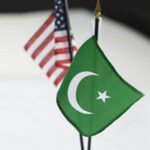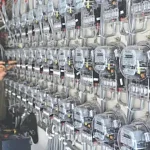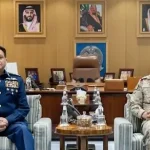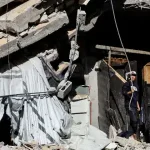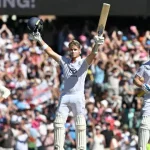Hundreds of noisy protesters greeted Indian Prime Minister Narendra Modi when he arrived in London on Wednesday, demonstrating over a rising tide of sexual violence at home including two particularly brutal rapes.
Holding placards reading “Modi go home” and “we stand against Modi’s agenda of hate and greed,” they gathered outside Downing Street and parliament as Modi arrived for talks with Prime Minister Theresa May.
Sexual violence against women is a highly charged political issue in India, where protests regularly erupt about entrenched violence against women and the failure to protect them.
“The Indian government are doing nothing, and you feel sorry for the families because of the total injustice of it all,” said Navindra Singh, an Indian-born lawyer who lives in Britain.
“He has been in power for four years now and there has been no policy change to help protect women and children.”
Protests have erupted across India after the latest rape cases were reported. Police officers and a politician are under investigation in two of the unrelated cases.
In a crime that shocked India, an 8-year-old Muslim girl in the northern state of Jammu and Kashmir was kidnapped, drugged and held for several days while she was raped repeatedly and then murdered.
In the other case, a state lawmaker from Modi’s Bharatiya Janata Party stands accused of raping a teenager. No action was taken against the politician until the girl threatened to set herself on fire earlier this month. Her father died soon afterwards from injuries he sustained while in police custody.
Modi addressed the outrage over the rapes last week by promising justice regardless of whoever the guilty were.
Nearly 40 percent of India’s rape victims are children and the 40,000 reported rapes in 2016 marked a 60 percent increase over the level in 2012. But women’s rights groups say the figures are still gross underestimates.
Modi, a Hindu nationalist, is a divisive figure in India and his second trip to Britain as prime minister represents a remarkable turnaround for a man who was once banned from the UK over his alleged role, as chief minister of Gujarat, in riots that killed about 1,000 people in 2002.
Britain ended a boycott of Modi in 2012 after he emerged from being a provincial politician to the likely leader of the world’s largest democracy. He has denied wrongdoing and was exonerated by an inquiry ordered by India’s Supreme Court.



